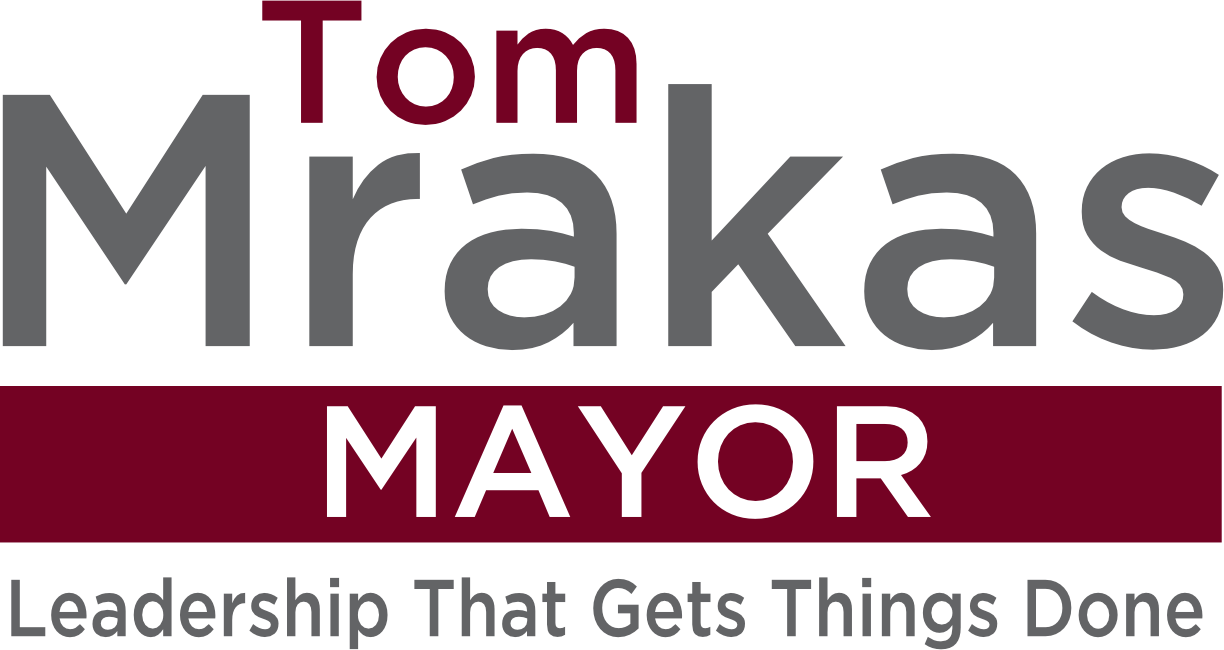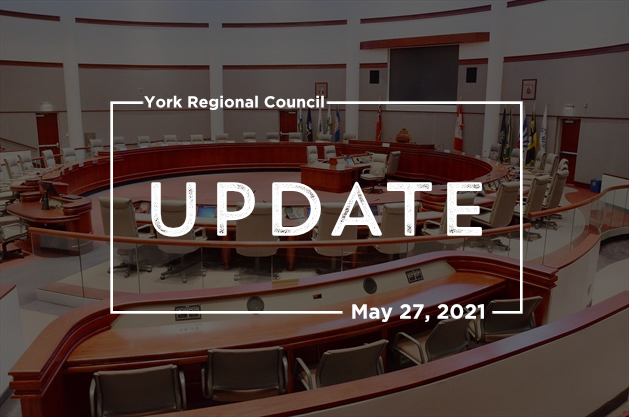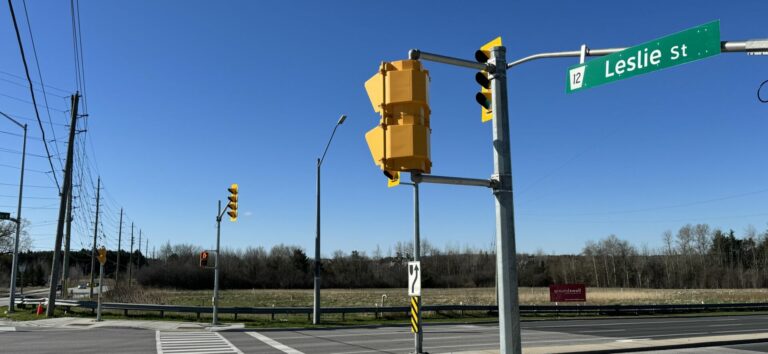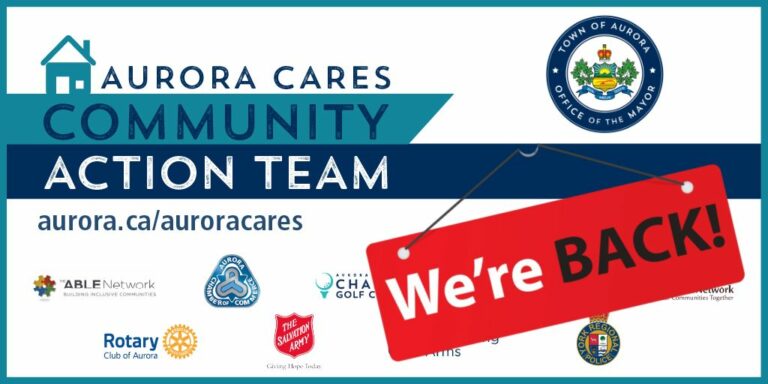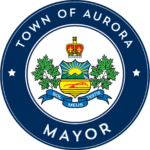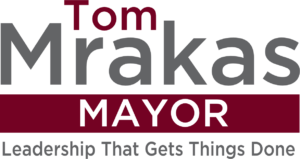Moving forward with the Yonge North Subway Extension
On Tuesday, May 11, 2021, York Regional Council celebrated the Government of Canada’s historic investment in Ontario rapid transit infrastructure, which will contribute 40% capital funding to the Yonge North Subway Extension.
Access to safe and reliable transportation options continues to be a predominant issue for York Region residents, with the Yonge North Subway Extension to the Richmond Hill / Langstaff Urban Growth Centre being Regional Council’s top transit priority.
Extending the Yonge North Subway Extension to the City of Richmond Hill will improve economic activity by linking prosperous urban growth centres up and down Yonge Street to new, complete communities. By connecting the diverse cities of Toronto, Vaughan, Markham and Richmond Hill, the Yonge North Subway Extension is an integral part of York Region’s post-pandemic recovery plan, creating job growth and resiliency to help York Region remain competitive.
A project of this magnitude is not possible without the collaboration of all levels of government, and Regional Council has extended gratitude to federal, provincial and municipal partners for their commitment to moving forward on the Yonge North Subway Extension.
70% of eligible York Region adults receive first dose vaccination
On May 26, 2021, York Region reached an important milestone in the fight against COVID-19 with more than 70% of eligible adults having received their first dose of a COVID-19 vaccine.
This milestone is a testament to the dedication of many individuals and partners who continue to advance York Region’s mass immunization plan and the York Region residents who have rolled up their sleeves in an effort to slow the spread of COVID-19.
Regional Council extended thanks and acknowledged the significant contributions made by York Region staff, York Region’s COVID-19 Vaccine Task Force, hospital partners, pharmacies, physicians and partner-led clinics. Through these collaborative partnerships, York Region continues to move toward the reopening of our communities.
As more residents receive a first dose vaccination, Regional Council also passed a motion calling on the Government of Ontario to advance second dose vaccinations for residents 70 years of age and older.
York Region’s continued response to COVID-19
Regional Council received a series of updates on the ongoing response to the COVID-19 global pandemic, including a verbal update from York Region Medical Officer of Health Dr. Karim Kurji.
Dr. Kurji provided an update on the advancement of York Region’s mass immunization plan, with the expansion of vaccine eligibility to all residents 12 years and older who live, work or go to school in York Region and plans to move towards second doses for eligible priority groups.
With a downward trend in new positive cases of COVID-19 and 70% of eligible adults receiving at least one dose of a COVID-19 vaccine, Regional Council passed a motion calling on the Government of Ontario to move York Region into Step One of the provincial Roadmap to Reopen plan as of May 31, 2021.
As cases continue to decrease and until the population has been fully vaccinated, York Region will continue to maintain an enhanced response to COVID-19 with case, contact and outbreak management, infection prevention and control measures and increased enforcement of public health measures. At the same time, York Region continues to monitor vaccine supply and make adjustments to the COVID-19 Vaccination Program to ensure continued immunization opportunities for all York Region residents.
Regional Council also received an update on the financial impacts of COVID-19, which are estimated to be $117 million between January 1 and April 30, 2021 or approximately $7.6 million per week. While funding commitments from senior levels of government are expected to help address these financial impacts, York Region staff continue to look at additional efficiencies to offset pandemic related pressures.
More information on York Region’s continued response to COVID-19 is available at york.ca/covid19
74% of York Region’s Strategic Plan’s performance measures are trending in the desired direction
York Region released its Year 2 (2020) Progress Report on the 2019 to 2023 Strategic Plan which shows the Region’s progress on its four-year strategic plan during unprecedented times. In 2020, 23 of 31 (74%) of the performance measures were trending in the desired direction. The strategic plan provides a detailed course of action over a term of Regional Council within the four community result areas: Economic Vitality, Healthy Communities, Sustainable Environment and Good Government.
York Region’s 2019 to 2023 Strategic Plan is tracked, measured and reported annually to ensure progress is made on Council’s priorities. A copy of the progress report and other documents relating to York Region’s strategic planning is available at york.ca/stratplan
2022 budget direction includes tax levy increase target of 1.96%
For the final year of the four-year budget, Regional Council directed staff to reduce the previously endorsed 2022 tax levy outlook of 2.96% to 1.96%. This will be accomplished through reductions to the 2022 operating outlook.
On March 25, 2021, Council approved the third year of the Multi-year Budget. As a result of additional provincial pandemic funding and organization-wide mitigations to offset cost pressures, the 2021 Budget was approved with a tax levy increase – after assessment growth – of 1.54%, lower than the 2.96% outlook.
The 2022 budget will continue to address the impacts of the COVID-19 pandemic and the risks and uncertainty in revenues and cost impacts, as well as addressing the potential impact of the Yonge North Subway Extension project.
Driving positive change through economic and social impact
Regional Council received a presentation from York University President and Vice-Chancellor Dr. Rhonda L. Lenton on the university’s economic, fiscal and social impact in the GTHA, Ontario and beyond.
Driving Positive Change: The York University Economic and Social Impact Report 2020 documents the magnitude of York University’s economic impact through access to education, employment, innovative research and as a global gateway.
York Region benefits from the economic and social impacts of York University, as alumni – many of whom reside in York Region’s nine cities and towns – are more likely to volunteer their time to schools, religious organizations, sports or community organizations, engage in entrepreneurial activities and obtain higher incomes.
Further to the impacts of alumni, York University’s collaborative partnerships are driving innovative solutions to inequality, pandemic recovery, climate change and other complex issues facing our communities. These impacts will further benefit York Region with the opening of the Markham Centre Campus in September 2023. In collaboration with the Government of Ontario and York University, Regional Council’s $25 million capital funding commitment in the new campus will strengthen opportunities for students and create new opportunities for research, innovation and business growth.
York Region Transit Enforcement continues to protect travellers
Regional Council received the York Region Transit (YRT) 2020 Enforcement and Security Annual Report highlighting the work to ensure YRT travellers remain safe and comfortable.
While the COVID-19 pandemic resulted in an overall reduction in ridership and reduced the need for fare inspections, more emphasis was placed on traveller education, safety and security.
Since July 2020, staff supported the Transit bylaw requiring face coverings on YRT services by interacting with those not meeting the requirement as well as providing masks to travellers without one.
Speed limits being reduced in school zones
Existing speed limits on Regional roads in all York Region school zones will be reduced by 10 km/hr. Current speed limit signs will be replaced with new signs indicating the days and hours speed limits are decreased.
To improve traveller safety, 64 elementary and secondary schools on Regional roads will have new school zone maximum speed signs. Work will begin in spring 2021 and is expected to be completed before the September 2021 school year is scheduled to begin.
The new signs will include the times, days and months of the 10 km/hr reduced speed limits will be in effect. New school zone maximum speed limits between 7 a.m. to 5 p.m. will help enhance safety, including when school is in session, the morning and evening commute periods when children are walking, cycling, being dropped off or picked up and during after-school activities.
Transfer of Yonge Street to York Region supports rapid transit in Richmond Hill
Regional Council approved the transfer of Yonge Street from Levendale Road to Elgin Mills Road from the City of Richmond Hill to The Regional Municipality of York. The transfer will support consistent rapid transit along the Yonge Corridor.
The Yonge Street rapidway from Highway 7 to 19th Avenue/Gamble Road completed construction and opened for service in December 2020.
York Region makes meaningful strides toward canopy and woodland cover
York Region’s 2020 Greening Strategy Achievements and State of the Forest report outlines continued progress to increase canopy and woodland cover and on-the-ground action supported by partners to strengthen the natural environment.
In 2020, canopy cover and woodland cover in York Region increased to 33.4% and 23.6%, respectively. While the timeframe to achieve 40% canopy cover by 2051 remains the same, the date for achieving 25% woodland cover will be revised from 2031 to 2051 through the Municipal Comprehensive Review. This allows time to better reflect gains in woodland cover as natural regeneration and past tree planting efforts materialize.
Additional 2020 Greening Strategy achievements include planting 60,539 trees and shrubs, inspiring resident action through 108 virtual events and leveraging $534,000 in external funding.
As a result of COVID-19, the York Regional Forest has experienced a significant increase in visitors warranting additional monitoring and provisions to ensure a safe and positive visitor experience.
Steps are also being taken to protect Regional tree assets and support residents against severe tree defoliation by invasive pest European gypsy moth / Lymantria dispar dispar (LDD) this spring/summer.
2021 York Region Homeless Count and Community Safety & Well-being Plan Update
Regional Council received an update on the 2021 York Region Homeless Count. On June 1 and 2, 2021, the Region will partner with the United Way of Greater Toronto to carry out this year’s Point-in-Time count.
A Point-in-Time count captures numbers and basic demographics of people experiencing homelessness at a single point in time. By targeting investments and resources on prevention, diversion, wrap-around and housing retention supports and crisis supports, the Region continues to be successful in helping people experiencing or at-risk of homelessness move towards housing stability.
Regional Council also received an update on the Community Safety and Well-being Plan for York Region. Between August 2020 and March 2021, over 700 members of the public and stakeholders from across York Region participated in the engagement process, including through online surveys and iterative rounds of virtual consultations.
The Community Safety and Well-being Plan for York Region will help focus on actions that build and sustain strong, caring, safe communities for all residents and support the Region as a vibrant, growing destination of choice for employers and residents and their families.
Taking a local collaborative planning approach to the preparation of the plan provides an opportunity to build on Regional initiatives and develop targeted strategies that reflect community needs and address specific services gaps.
Insights from local tables will inform the proposed Community Safety and Well-being Plan, to be brought forward to Council in 2022.
York Region continues to partner with conservation authorities
Regional Council renewed its agreement with Lake Simcoe Region Conservation Authority (LSRCA) and the Toronto and Region Conservation Authority (TRCA) to continue to provide efficient, timely and cost-effective services needed to support and enable growth throughout the Region.
The Memorandum of Understanding between York Region and the conservation authorities has been in place since 2000, providing the Region with environmental and technical expertise. Collaborative programs include working to protect residents and their property, and Regional infrastructure, from flooding, erosion and other natural hazards while protecting Regional natural heritage systems and drinking water sources.
While the full impacts of recent changes to the Conservation Authorities Act are currently unknown, York Region’s current arrangements with both the LSRCA and the TRCA have resulted in a collaborative effort in planning, reviewing and permitting consistency throughout our watersheds.
2020 Annual Investment Report shows strong Regional position
Regional Council received the 2020 Annual Investment Report, providing an update on the General and Sinking Fund investment portfolios held by York Region.
In 2020, the General Fund realized record investment returns of $124.4 million, or a 3.76% return rate. After costs, the total return was $13.2 million higher than the principal benchmark, the FTSE/S&P Composite Index and $53.2 million higher than The ONE Investment Program. These returns augment reserve and reserve fund balances over the longer term, potentially reducing future levels of required contributions to these funds.
In 2020, the Sinking Fund generated realized returns of $35 million on a fixed income portfolio, averaging $836.9 million. This equates to a realized rate of return of 4.18%. The returns were $15.4 million higher than the $19.6 million required to meet the Sinking Fund actuarial requirement for 2020.
York Region’s investment program is governed by a sound and effective Council-approved Investment Policy that consistently provides positive returns while maintaining conservative credit and term risk exposures.
